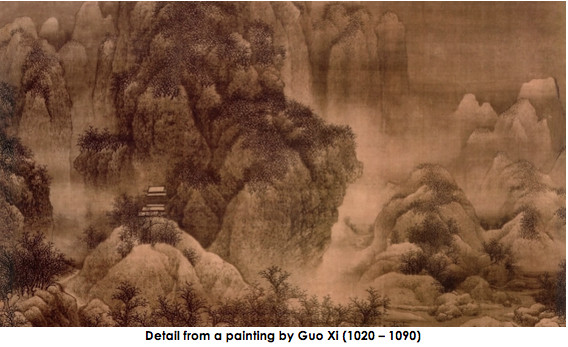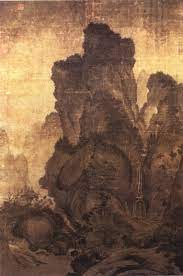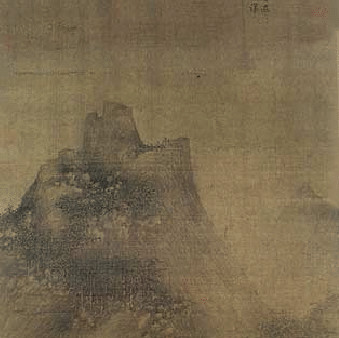by Nora Hoppe for the Saker blog

Various notes and reflections by Nora Hoppe
Judging by the many reactions of various journalists, analysts and lay persons around the world (chiefly in the West), many people expected the Chinese government to respond with immediate lethal force when Nancy Pelosi's plane landed in Taipei. Many were even disappointed or incensed - whether they are for or against the People's Republic of China - when this did not occur. Several wrote that China had now shown itself as weak and ineffectual, that it was all "bark and no bite", that it had permanently lost face before the world. These people seemed to have interpreted Hu Jixin's artful warnings on Twitter and on his commentary on Global Times in "Hu says" in a hyperbolic manner "Hollywood" style. They had been expecting a theatrical showdown. (We remember similar expressed frustrations regarding Putin's initial "patience" with regard to western crimes committed in Syria and in Ukraine.)
So, where is the response? Why do so many people today always expect the instantaneous and the blatant? Is it because so many in our impatient, consumerist times are accustomed to instantly getting what they assume or what they want?
And what is a sign of strength? Is it immediate brute force? Perhaps it is for those programmed by stale Hollywood action narratives that have apparently moulded recent western policies and strategies
Western colonialism (which persists) and the domination of western media and western trivial culture (I make a point of saying "trivial" here, as western classical culture is now almost extinct) have limited many people's perceptions of the cosmos all over the world. Today, in the West, to its own detriment, the current "[non-] culture" has indeed obscured almost all of the noblest achievements of Western civilisation in the past. In view of the present-day Collapse of the West, many comparisons are made with the Fall of Rome In "The Decline and Fall of the Roman Empire", eminent historian Edward Gibbons described the erosion of culture of that era: "The name of Poet was almost forgotten; that of Orator was usurped by the sophists. A cloud of critics, of compilers, of commentators, darkened the face of learning, and the decline of genius was soon followed by the corruption of taste." But at that time the destruction was not so comprehensive and so pervasive.
At any rate, not all countries in the world are driven by western narratives. In this world there still exist other mind-sets, other beliefs, other perspectives, other mentalities, other courses of action And hopefully these countries will continue to honour the rich civilisations of their past.
* * *

Qi is revered not only in the aesthetics of classical Chinese painting, where it is represented in the Emptiness and in the flow of ink, not only in Chinese traditional medicine, not only in the martial arts
But what is "Qi"? It can be said to be "breath" on a cosmic scale, the "energy of the Universe" also "life force". Qi is also said to be the basis of the world, the original form of all the tangible and intangible things, the root of consciousness
Qi, like the Tao, cannot be fully defined. It will always remain an enigma to us, because human beings are incapable of fathoming the Universe and life in its deepest sense. This is a humble and honourable approach to a belief system. The human being is NOT and can never be the all-knowing master of the Universe.
An excerpt from the Tao Te Ching (Chapter 42) describes the Genesis of the Universe (which the "Theory of the Big Bang" comes close to echoing):
The Tao begets One (the un-manifested Qi).
The One begets Two (the static polarities of Yin and Yang).
The Two beget Three - a dynamic Qi appears opening Yin and Yang into a harmony of interaction.
And from Three, creation [in time and space] unfolds and all things are born.
In this way, all things carry yin on their backs and embrace yang.
By balancing Qi they achieve harmony.
In the Tao Te Ching, the Universe is pictured as a great bellows engaged in a cosmic process of respiration. The "breath" has two complementary dualities, Yin and Yang - corresponding to inhalation and exhalation. The activity of breathing in and out unites humans with the alternating rhythms of heaven and earth. In the Chinese martial arts, to keep one's Qi strong is to be able to balance the Yin and Yang within oneself.
Mencius (372-289 BC), an itinerant Confucian philosopher (considered the "second Sage", after Confucius) who synthesised integral parts of Taoism into Confucianism, believed that the human is naturally virtuous and humane and that it is the influence of society that causes bad moral character. He described Qi as a vital energy. Qi was necessary to activity and it could be controlled by a well-integrated willpower. When properly nurtured, Qi was said to be capable of extending beyond the human body to reach throughout the universe. It could also be augmented by means of careful exercise of one's moral capacities.
The cultivation and balancing of one's own Qi (which begets harmony) requires patience, tranquillity, equanimity, awareness. Qigong is a practice that typically involves meditation in motion, coordinating slow-flowing movement, deep rhythmic breathing, and a calm meditative state of mind. With roots in ancient Chinese culture dating back more than 4,000 years, a wide variety of qigong forms have developed within different segments of Chinese society: in traditional Chinese medicine for preventive and curative functions; in Confucianism to promote longevity and improve moral character; in Taoism and Buddhism as part of meditative practice; and in Chinese martial arts to enhance self-defending abilities.
The martial arts of China (Zhongguo wushu) and other countries in East Asia often deal with the complementary dual forces of "pushing" and "pulling". If, for example, your adversary is pushing, the best way to deal with him is not to push back because this only leads to unnecessary painful collisions and also wastes one's energy the best way is to open the way for his push and at a last, quick and unexpected moment steer it abruptly in another direction, which will often lead to his fall. The adversary has thus generated his fall himself from his own energy.
Basic training in Chinese martial arts speaks of the following practices: "Train both the External and the Internal. External training includes the hands, the eyes, the body and stances. Internal training includes the heart, the spirit, the mind, breathing and strength." Meditation is considered to be an important component of basic training as it can be used to develop inner calm, focus and mental clarity. (Inner calm, focus and mental clarity are rare states today, especially in a fast-paced, hyper-consumerist, capitalist world that is a product of the West.)
Kano Jigoro (born in Mikage, Japan; 1860-1938), who studied the Four Confucian Texts and became the founder of judo (meaning "gentle way"), a system of unarmed combat evolving from jujutsu), embraced the principles of seiryoku zen'yo (maximum efficiency, minimum effort) and jita kyoei (mutual welfare and benefit - influenced by Confucianism). He illustrated the application of seiryoku zen'yo with the concept of ju yoku go o seisu (softness controls hardness): "In short, resisting a more powerful opponent will result in your defeat, whilst adjusting to and evading your opponent's attack will cause him to lose his balance, his power will be reduced, and you will defeat him. This can apply whatever the relative values of power, thus making it possible for weaker opponents to beat significantly stronger ones. This is the theory of ju yoku go o seisu." Judo evolved from jujutsu but Kano changed the second character of "-jutsu" (meaning "means") to "-do", meaning "way", "road" or "path", which implies a more philosophical context than "jutsu" and has a common origin with the Chinese concept of the Tao.
It is interesting to note that President Putin holds a black belt in judo, and was awarded the sixth dan by the Kodokan Judo Institute in Tokyo in 2000. (Early this year he was however stripped of this title because of his "actions in Ukraine", but he had earned the title through his skills. The "International Judo Federation Headquarters" that took this inane decision is seated in Hungary - in the EU.) Putin is obviously well aware of the subtle balancing acts involved in strengthening one's Qi, and he has an extraordinary gift of endurance. Political analyst and essayist Dmitry Orlov expounded on this in an incisive essay first published in 2018.
"The Art of War", written during the 6th century BCE and attributed to the ancient Chinese military strategist Sun Tzu, deals directly with military warfare but contains ideas that are adopted in the Chinese martial arts. Across East Asia, "The Art of War" was part of the syllabus for potential candidates of military service examinations. Much of the text focuses on how to outsmart one's opponent without actually having to engage in physical battle. (Though it is now apparently recommended reading for some military academies in the West, it does not seem to have had any effect on western military strategies.)
As already mentioned in a previous essay, the Eastern mind-set tends to view things as a whole made up of complementary various parts, whereas the Western mind-set tends to focus on the individual and see "the parts" as separate entities. Just like the core content presented by the precepts of ancient Chinese Taoism, Confucianism, and Buddhism, reality and nihility, being and non-being are closely linked, and they are a unity that is both conflicting and indivisible.
In Eastern thought, humans are integrated into a larger whole rather than celebrated as a towering presence. The Neo-Confucian philosophy, which incorporated aspects of Taoism and Buddhism and was developed during the Song dynasty, cultivated a profound respect for all living things and emphasized humanity's interconnectedness with a wider universe.
The more a human being believes in his individual exceptionalism, focuses on his ego, his needs and his wants exclusively, seeks power over others and allows himself to be seduced by the materialism of the outside world, the more disconnected he becomes from the Universe and the less he knows himself.
The great French philosopher Michel de Montaigne, whose humble motto was "Que sais-je" ("what do I know?"), was keenly aware of his limitations as a human being in understanding the ways of the Universe. And in his essays, he wrote extensively on man's vanity and hubris. "It was a paradoxical command that was given us of old by that God at Delphi: 'Look into yourself, know yourself, keep to yourself; bring back your mind and your will, which are spending themselves elsewhere, into themselves. You are running out, you are scattering yourself; concentrate yourself, resist yourself; you are being betrayed, dispersed, and stolen away from yourself. Do you not see that this world keeps its sight all concentrated inward and its eyes open to contemplate itself? It is always vanity for you, within and without; but it is less vanity when it is less extensive. Except for you, O man, each thing studies itself first, and, according to its needs, has limits to its labours and desires. There is not a single thing as empty and needy as you, who embrace the universe: you are the investigator without knowledge, the magistrate without jurisdiction, and all in all, the fool of the farce.'"
The tiny recent event, amongst many throughout the long history of the world, in which an insignificant, vapid figure named Nancy Pelosi hailing from a callow, self-proclaimed "indispensable nation" visited an island named Taiwan in order to flaunt a delusional sense of magnitude in an attempt to humiliate the time-honoured People's Republic of China, displays a flawless example of a fool of a farce.
China is abiding its time, as Russia has been doing. They understand and have seen that initiatory lethal force is unnecessary, wasteful and ultimately self-harming. And patience has many virtues
Today we see both the western world and the capitalist system - both of which have been in a state of decay for quite some time - crumbling. It only goes to show that the supreme focus on the individual and the absorption with "one's own kind", separate from and versus the Other, is not "sustainable" and not compatible with the Universe.
Some quotes from "The Art of War" attributed to Sun Tzu:
- "The greatest victory is that which requires no battle."
- "Ponder and deliberate before you make a move."
- "He who is prudent and lies in wait for an enemy who is not, will be victorious."
- "He will win who, prepared himself, waits to take the enemy unprepared."
- "It is more important to out-think your enemy than to outfight him"
- "The whole secret lies in confusing the enemy, so that he cannot fathom our real intent."
- "Be extremely subtle even to the point of formlessness. Be extremely mysterious even to the point of soundlessness. Thereby you can be the director of the opponent's fate."
- "The opportunity of defeating the enemy is provided by the enemy himself."
- "Bravery without forethought, causes a man to fight blindly and desperately like a mad bull. Such an opponent, must not be encountered with brute force, but may be lured into an ambush and slain."
- "Do not swallow bait offered by the enemy. Do not interfere with an army that is returning home."
- "The line between disorder and order lies in logistics."
- "Move not unless you see an advantage; use not your troops unless there is something to be gained; fight not unless the position is critical."
- "Let your plans be dark and impenetrable as night, and when you move, fall like a thunderbolt."
- "The general who advances without coveting fame and retreats without fearing disgrace, whose only thought is to protect his country and do good service for his sovereign, is the jewel of the kingdom."
- "Wheels of justice grind slow but grind fine."
- "All war is deception."
Principal references:
Lao Tzu: Tao Te Ching / Translator, Introduction: D. C. Lau - (Penguin Classics) [1963]

N. Hoppe: New York City; Suriname; lived and worked in London, Rome, Munich, Paris, Rotterdam, St. Petersburg, Berlin, Southeast Asia; researcher, writer, filmmaker